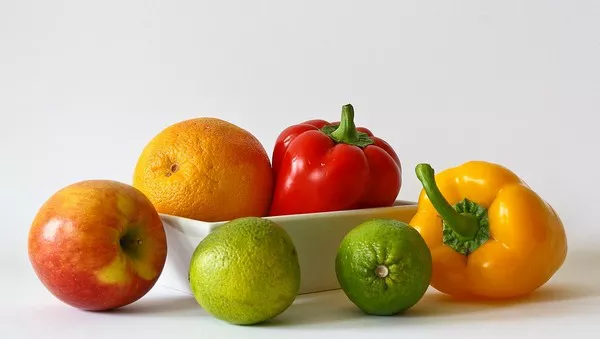In a recent study published in BMC Nutrition, researchers from Italy explored the relationship between vitamin C levels, diet, and cardiovascular diseases (CVDs) in patients with type 2 diabetes (T2D). The study, which involved 200 adult diabetic outpatients, found a significant inverse association between vitamin C concentrations and the prevalence of CVD, highlighting the potential benefits of dietary vitamin C, particularly from fresh fruits and vegetables, in managing heart disease risk in diabetic patients.
Background
Cardiovascular diseases (CVDs) are a leading cause of mortality worldwide, with an estimated 18 million deaths annually, according to the World Health Organization (WHO). CVDs are particularly prevalent in individuals with pre-existing chronic conditions such as type 2 diabetes (T2D), which is often associated with high body mass index (BMI) and poor metabolic health. Vitamin C, an essential nutrient with antioxidant properties, has been shown to help mitigate oxidative stress—a condition common in diabetic patients due to high lipid peroxidation and reactive oxygen species (ROS) generation.
However, while synthetic vitamin C supplements have been studied for their potential to reduce cardiovascular risk, clinical results have been inconsistent. Some studies suggest that supplements may have limited benefits or even pose risks for diabetic patients. This has led researchers to investigate the role of natural sources of vitamin C, particularly fresh fruits and vegetables, in reducing heart disease risk.
About the Study
The study was a cross-sectional observational investigation conducted between September 2022 and March 2023, involving adult patients diagnosed with T2D. Participants aged between 18 and 80 were recruited from a diabetic outpatient clinic. Those with a history of vitamin C supplementation in the past six months, pernicious anemia, autoimmune gastritis, or pregnancy were excluded. A key aim of the study was to examine the relationship between natural vitamin C intake (from fresh fruits and vegetables) and CVD prevalence in this population.
Blood samples were collected from participants after an overnight fast to assess various biochemical markers, including vitamin C concentrations. A food frequency questionnaire was also administered to evaluate participants’ intake of fresh fruits and vegetables, which are rich in vitamin C.
Study Findings
The study found that approximately 12.2% of the participants were deficient in vitamin C (concentrations ≤20 μmol/L). Interestingly, patients with established CVD complications had significantly lower vitamin C levels compared to those without cardiovascular issues. This inverse relationship between vitamin C levels and CVD prevalence was confirmed through multivariate logistic regression models, indicating that lower vitamin C concentrations were independently associated with higher CVD risk in diabetic patients.
Additionally, the study observed a strong positive correlation between fresh fruit and vegetable consumption and vitamin C levels. Participants who consumed more servings of fruits and vegetables per day had significantly higher vitamin C concentrations. Specifically:
Those consuming less than one serving per day had an average vitamin C level of 28.7 μmol/L.
Those consuming one to two servings per day had an average of 45.4 μmol/L.
Those consuming more than two servings per day had the highest average of 49.8 μmol/L.
These findings suggest that increasing the intake of fresh fruits and vegetables, which are naturally high in vitamin C, may help boost vitamin C levels and potentially lower the risk of heart disease in individuals with T2D.
Key Observations
No Impact of Medications on Vitamin C Levels: The study also found that commonly used medications, including cholesterol-lowering drugs and diabetes medications, did not significantly affect vitamin C levels. This is an important finding as it dispels concerns that medication use might obscure or worsen vitamin C deficiencies in diabetic patients.
Gender Differences: Men were found to have lower average vitamin C levels than women, though the overall deficiency rates were similar for both genders. This suggests that there may be sex-specific factors affecting vitamin C levels, which warrants further investigation.
Importance of Fresh Food Over Supplements: The study suggests that fresh fruits and vegetables are preferable to synthetic vitamin C supplements for managing CVD risk in T2D patients. This recommendation aligns with other studies that have found natural food sources to be more effective in promoting overall health compared to isolated nutrient supplements.
Conclusion
The study underscores the importance of fresh fruit and vegetable consumption for individuals with type 2 diabetes, particularly in relation to heart disease prevention. It emphasizes that vitamin C obtained through diet—rather than supplements—may provide a more reliable protective effect against CVD. These findings have significant implications for public health strategies aimed at reducing heart disease risk in diabetic populations, suggesting that dietary interventions focusing on increasing the intake of vitamin C-rich foods may be an effective approach in managing cardiovascular health.
This study contributes to the growing body of evidence supporting the role of diet in managing chronic conditions like type 2 diabetes and highlights the potential benefits of consuming nutrient-dense, whole foods over relying on supplements for disease prevention.
You Might Be Interested In:
-
Smoothies with Seeds May Improve Glycemic Control, Study Shows
-
Swedish Study Highlights Prevalence of Fetal Alcohol Spectrum Disorders
-
Study Identifies 17 Modifiable Risk Factors Shared Between Stroke, Dementia, and Depression

